Dwindling university autonomy in Bangladesh
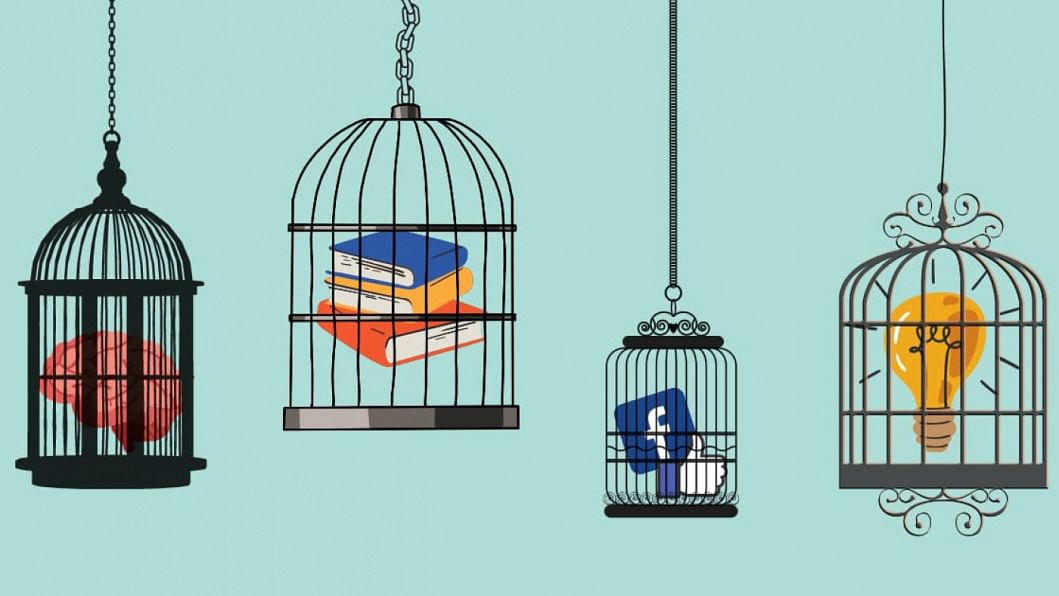
Bangladesh's National Education Policy acknowledges that "autonomy is a must" for higher educational institutions. The first four public universities, governed under a set of laws enacted in 1973 which set the standards of university autonomy in Bangladesh, offer no "prejudice to the freedom of any faculty member or officer to hold any political views." Subsequent public university legislation, too, protects faculty members' right to hold any political views, but forbids them from propagating their political views and from being associated with political organisations. The National University, where government control is absolute, also promises to hold no "prejudice to [faculty members]" civil and other rights.
However, our recently published study on academic freedom in Bangladesh has found several alarming factors contributing to declining academic freedom in the universities of Bangladesh.
Our research found that notable factors fomenting the decline of academic freedom in Bangladesh include a persisting fear of professional repercussions, legal harassment, and physical assaults among academics, the intimate relationship between the government and the university administration, the ruling party's student affiliates, and partisan roles of the teachers' associations in public universities. In private universities, challenges to academic freedom have an additional layer: faculty members participating in our research told us that their jobs are at the mercy of the board of trustees.
Persisting fear
Academics participating in our research shared their uneasiness about research – as to what to and not to talk about in classrooms and what research questions they should explore. Such fear is widespread and, unfortunately, normalised.
Academics are concerned about teaching and researching issues related to gender, religion, the ruling party, the government, and politics in general.
One interviewee stated, "There is a potential risk of losing my job if I talk about some issues in class settings, especially the issues that are [a] religiously and culturally sensitive topic that goes against the dominant ideologies within the state."
Another added, "Direct criticism of the government's actions [is] taboo. If agents of the ruling party [learn about our] criticism, they may exert damaging pressure on the teacher's career."
When we asked, "Are you afraid to talk about some issues in the class?", one interlocutor responded: "Very much. Given the fact that Noakhali [a south-eastern district of Bangladesh] is a highly conservative area, and I was teaching gender, it was tough to discuss issues regarding gender equality and women empowerment."
Another interviewee, a social science professor at a private university, added that they avoid discussing pressing and relevant topics in classes if they perceive them to be sensitive: "Every semester, I get calls from the head of the department and the vice chancellor and am strongly charged as to why I always spoke in the classroom against government interests," said the private university faculty member.
Another respondent noted: "I remain very careful not to write [on an issue] that would create a debate (controversy). For example, I avoid being very critical about the roles of the [government] on human rights and CVE (countering violent extremism), extrajudicial killings, political violence, and enforced disappearances."
"I know it's a shame, but I do not see anyone protecting me. My university will not protect me," the respondent added.
Judging by contemporary precedents, their fear is entirely justified.
In 2019, a senior professor affiliated with the University of Science and Technology Chittagong, a private university, was physically assaulted by a group of students for delivering "obscene" lectures involving "male-female relationship and Freudian psychoanalytic theory" (Some of the students had first attempted to prevent the professor from discussing these issues in class, pressured the university to terminate his contract, and subsequently threatened him with dire consequences.)
Since the Digital Security Act (DSA) regulates online content, the pandemic-era remote learning settings only added to these woes.
"Among faculty members, including me, there is a fear of falling victim to the DSA. And it's particularly true during the Covid-19 pandemic when we are conducting online classes," one faculty member told us at the time. "This is why I do not give the recorded lecture to students. Our university also takes written consent from students that they must not abuse lecture content."
As the pandemic restricted everyday life, the government's attention shifted to online speech, which affected academics, too. In 2020, authorities arrested two public university faculty members in Rajshahi and Rangpur for criticising a deceased former health minister, holding him responsible for the country's dismal healthcare system.
The same year, the government suspended two teachers at the National University for making "unwarranted and inciting" remarks on social media. They had merely pointed out the shortage of personal protective equipment (PPE) in health facilities.
In 2021, Khulna University, a publicly funded institution, suspended one faculty member and terminated the contracts of two others because they had expressed solidarity with an apolitical student movement that demanded a reduced rate of student fees and sufficient residential facilities for students.
While these examples do not always demonstrate a direct link to freedom to research and teach, these events have left a profound psychological impact on Bangladeshi academics, including those we interviewed. Our interlocutors say they live in a fearful climate, the chilling effect of which ultimately impacts their choice of research topics and teaching material.
The resultant self-censorship, in turn, is an affirmation of unfreedom. We, therefore, argue that self-censorship out of fear of persecution or repercussions restricts the free agency of academics.
Governance issues
"Instead of following the rules, [vice chancellors] are being appointed through executive orders," Professor Abu Naser Md Wahid, a senior academic with Rajshahi University, commented to the media in 2021. "Such orders result from serious lobbies by individuals affiliated with political leaders. Once appointed, the VCs remain loyal to the [political] leaders who lobbied for them. This is how the corruption starts."
But the root of corruption and associated governance challenges lies even deeper.
Public university laws vest varying powers to the university senate, governing bodies, and student bodies. But the lack of elections in student and governing bodies allows the government to exert its executive powers, thanks to flawed laws, to nominate and appoint its preferred academics to senior academic positions. The preference is determined by the academics' loyalty to the ruling party, such as whether – and how intimately – they are involved with the ruling party's politics. Once appointed, these officials feel indebted to their political benefactors, who want them to hire their activists, even if that amounts to corruption.
It is a vicious cycle: legal loopholes and the lack of democracy in the senate and student bodies allows the government to bypass them and position loyal academic officials in key posts, who then become corrupt – either by choice or under pressure from their political benefactors – which further invites government interference.
And no one better exemplified this cycle than Professor Abdus Sobhan, who served as vice chancellor of Rajshahi University until May 2021.
Sobhan appointed more than 100 teachers and officials on the last day of his tenure. Some media reports suggested that those appointed included his relatives and personal staff. The VC, who was previously leader of the ruling party-affiliated academics, admitted that most of those appointed at that time belonged to the ruling party's student wing. He defended the move as a "humanitarian" gesture and suggested that he was not obligated to follow the education ministry's recruitment moratorium.
As evident in this case, the failure of the respective university authorities to self-regulate, the misuse of autonomy to shield corruption, and the sheer dependence on government funds pave the way for government intervention, direct or otherwise.
Campus integrity
Our interlocutors said that officials from intelligence agencies function on university campuses.
Historically, public universities offered spaces for protests against the incumbent government. The proctor (as a general rule) determines whether the university needs to summon the police to maintain security and order. However, public universities – especially Dhaka University, which is situated at the heart of the capital city and is thus considered a political hotspot – have often witnessed a heavy presence and heavy-handed approach of security forces and intelligence agencies during student protests.
Campus branches of the ruling party's student wing also violently act against protesting students or those belonging to opposition groups. Police incursion into student dormitories is not uncommon, either.
When a new party comes to power, the supporters of the previous governing party are evicted from dormitories – which are generally used by students affiliated with political parties as a political base – by supporters of the new ruling party, aided by security forces. Those who are publicly aligned with the opposition parties rarely find a seat in student dormitories.
During extraordinary periods of political instability, student activists with known ties to the political opposition hesitate to join classes or sit for exams, fearing reprisals by rival groups, with university authorities reluctant to intervene in these cases. Since the current ruling party has been in power since 2009, with few signs of change in the status quo in the foreseeable future, the balance of power has been tilted to the incumbent party and its affiliated student organ.
Major public universities in Bangladesh have long been at the forefront of political and social justice protests. It is not uncommon for campuses to be shut down to curb the intensity of student protests, although such incidents have become less intense and less frequent over the last few years. Thanks to its long stay in power, the Awami League-led government has maintained a sense of stability on campuses, where its student wing remains the most dominant force. The last major protest that disrupted academic life at Dhaka University was in 2018, when university students protested the quota system in public jobs and university admissions that overwhelmingly favoured certain sections.
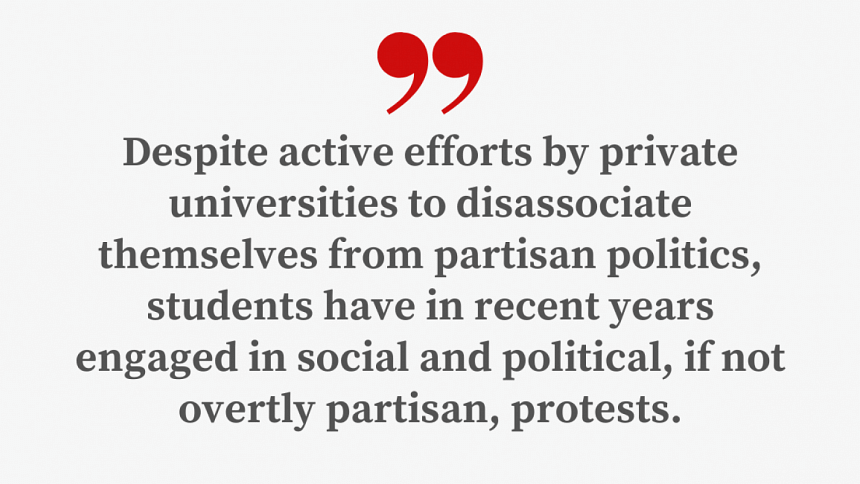
The right to assembly, including on campus, is at present seriously suppressed by agents of the state and the ruling party activists. Activists belonging to the political opposition, the BNP, are routinely targeted by ruling party cadres and not allowed to hold protest rallies or organise partisan events. In April 2021, an activist with a group that opposed the quota system in public jobs was reportedly detained by plainclothes detectives on the Dhaka University campus.
Private universities do not allow partisan political activities on campuses. They also strictly suppress internal student movements, such as when the University of Liberal Arts Bangladesh (ULAB) filed a criminal complaint against its students who demanded tuition fee reductions during the Covid-19 pandemic.
Despite active efforts by private universities to disassociate themselves from partisan politics, students have in recent years engaged in social and political, if not overtly partisan, protests.
In 2018, when students at East West University and North South University joined a popular movement initiated by schoolchildren for better road safety, they were violently assaulted by cadres associated with the ruling party, backed by law enforcement agencies. Some of the dozens of students arrested by police on and around campus were denied bail repeatedly.
Subnational variations
Although prestigious universities located in major cities are often at the forefront of political movements, any repression of students and scholars at these urban universities invites relatively more resistance and protests, thanks to the presence of vibrant progressive groups.
In addition, the capital city of Dhaka wields outsized power compared to the rest of the country. All major government offices and buildings are located in Dhaka, which also hosts cultural and media headquarters. Therefore, any adverse events that take place in Dhaka garner more attention and media coverage. Civil society sometimes calls out the harassment of students and scholars by authorities and discrimination by university authorities.
However, in district cities or rural towns, irregularities and violations of academic freedom are rarely challenged. Respective university authorities are more centred around the VC, with power centres dominated by their allies. The removal of students or even scholars is more easily carried out, with little protest from the external civil society or academic groups. In the absence of a strong civil society and press in regional areas, universities are under tighter control of the government apparatus and ruling party of the day.
Private universities, where the government does not intervene in specific cases, provide limited space for students and scholars to raise concerns about how the respective university functions and is run. The very nature of private universities, where students pay hefty tuition fees with almost no public subsidies, discourages students from getting involved in protests that may cost them their admission. Private universities also disproportionately employ part-time scholars (more than 26 percent, according to UGC statistics), unlike public universities, where most positions are tenured except for some adjunct faculty positions. Less stringent job security makes scholars in private universities more reluctant to get involved in robust activism and academic work than their counterparts in public institutions.
Since Bangladesh's academics, scholars, and students are mainly targeted for their activism, disciplines such as law, sociology, and political and social sciences are more vulnerable to undue interference, as evident from our interviews with faculty members. Other scientific disciplines, whose works affect business interests, are prone to restrictions such as efforts to discredit their research. Those who deal with sensitive topics such as militancy or Islamic fundamentalism are also found to be treading carefully with their work.
***
Our findings are aligned with the declining environment for free speech and democracy in Bangladesh. While universities are traditionally considered strongholds for fostering critical inquiry, free speech, and democratic culture, and centres for resistance to democratic backsliding, our findings paint a grim picture.
Oversized influence of government agencies and ruling party members, draconian laws such as the DSA, and university administrations and teachers' associations tied with the government have formed a control structure in universities where a culture of fear and mistrust prevails. These alone are severely detrimental to the free agencies of academics and students. Our findings also point to another uncomfortable reality: not just external actors but certain groups of academics and students are also actively suppressing academic freedom. It's a reality that's increasingly being normalised.
Mubashar Hasan, PhD is a postdoctoral researcher at the Department of Culture Studies and Oriental Languages at the University of Oslo, Norway, and a director of the Sydney Policy and Analysis Centre (SPAC) in Australia.
Nazmul Ahasan is a graduate student at the University of California, Berkeley.
The authors' study on academic freedom in Bangladesh was published by Routledge in a book project by the Global Public Policy Institute, Berlin, entitled "University Autonomy Decline".


 For all latest news, follow The Daily Star's Google News channel.
For all latest news, follow The Daily Star's Google News channel. 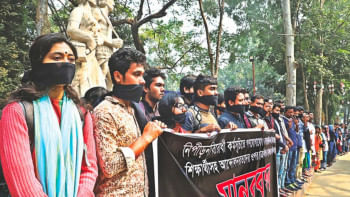









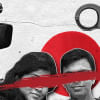
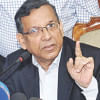

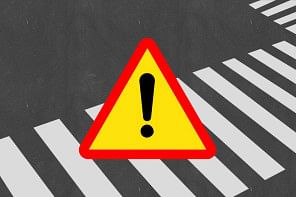
Comments